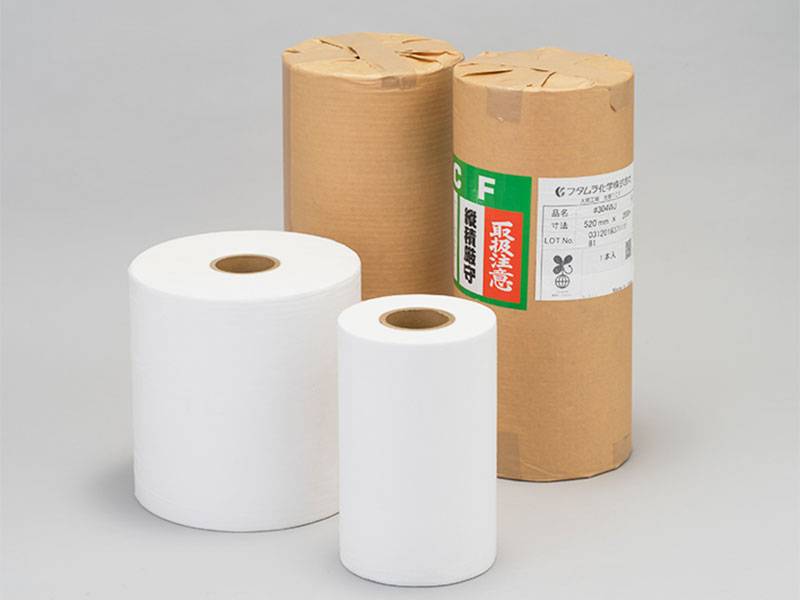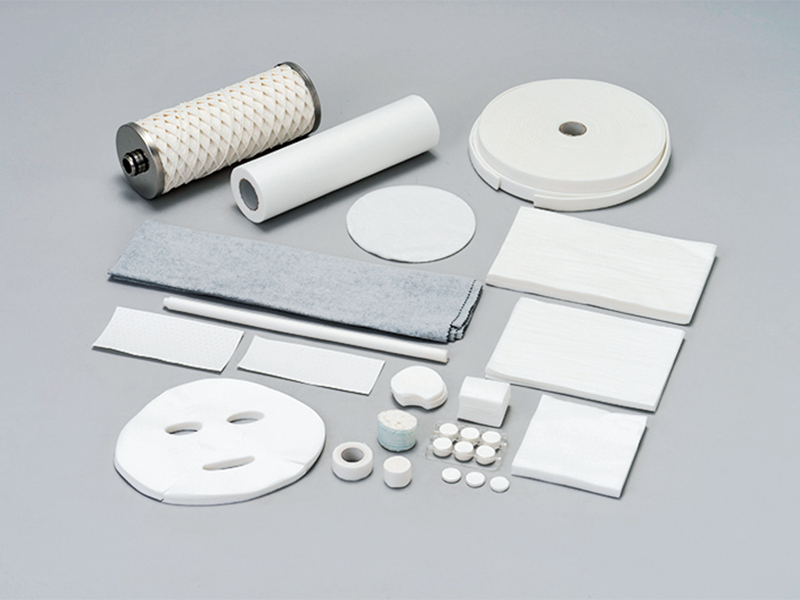Nonwoven Fabrics
 Nonwoven Fabrics
Nonwoven Fabrics
Nonwoven fabrics that are clean and hygienic with no impurities included.
Adopted for use in many industries and many fields.
TCF is a 100% cellulose nonwoven fabric made from pulp. The sheets are formed by fusing individual fibers with each other without any binder (adhesive), so they are very clean and hygienic with no impurities included.

Main application
Their main applications are medical, sanitary and cosmetic goods including face masks, wet tissues and gauze as well as food-related items and industrial materials.

TCF® Series
TCF stands for Textile Continuously Formed. As the name implies, textiles are formed constantly, and spinnings and windings are continuously produced. The original TCF manufacturing method is referred to as the wet short fiber spunbond method, and is the only one of its kind in the world.
Pure
100% cellulose nonwoven fabric with no adhesive used.
Suitable for wet use
Superb water absorptive performance and water-retainability which other nonwoven fabrics cannot provide.
Soft
A high-volume, soft nonwoven fabric.
Clean
Nonwoven fabric manufactured in a closed system.
Applications of TCF®
Medical goods
- gauze
- adhesive plaster
- wet wipes
- laminated sheets
- dental liquid-absorbent materials
Cosmetics
- facial masks
- cosmetic puffs
- makeup removers
Sanitary goods
- wet wipes
- oshibori (hand wet towel)
- sanitary napkins
- hairdressing & aesthetic goods
Industrial Materials
- cushions
- condensation-proof materials
- hygroscopic material
- filters
Food-related items
- cooking paper
- oil filters
- drip sheets
- food wrapping goods
- filters
Biodegradation of TCF 
TCF is a biodegradable and earth-friendly material.

TCF is a 100% cellulose nonwoven fabric made from wood pulp.
Cellulose is a main substance of plant cell walls. Many enzymes that decompose into cellulose exist in nature. TCF is, therefore, quickly discomposed in soil or compost and broken down into water and carbon dioxide.
TCF is made from trees, sustainable and renewable resources (biomass) blessed with nature and is a material suited for the transition to a recycling-based society system. For this reason, TCF has been certified as a biomass material by the Japan Organics recycling Association and has been given the biomass mark.